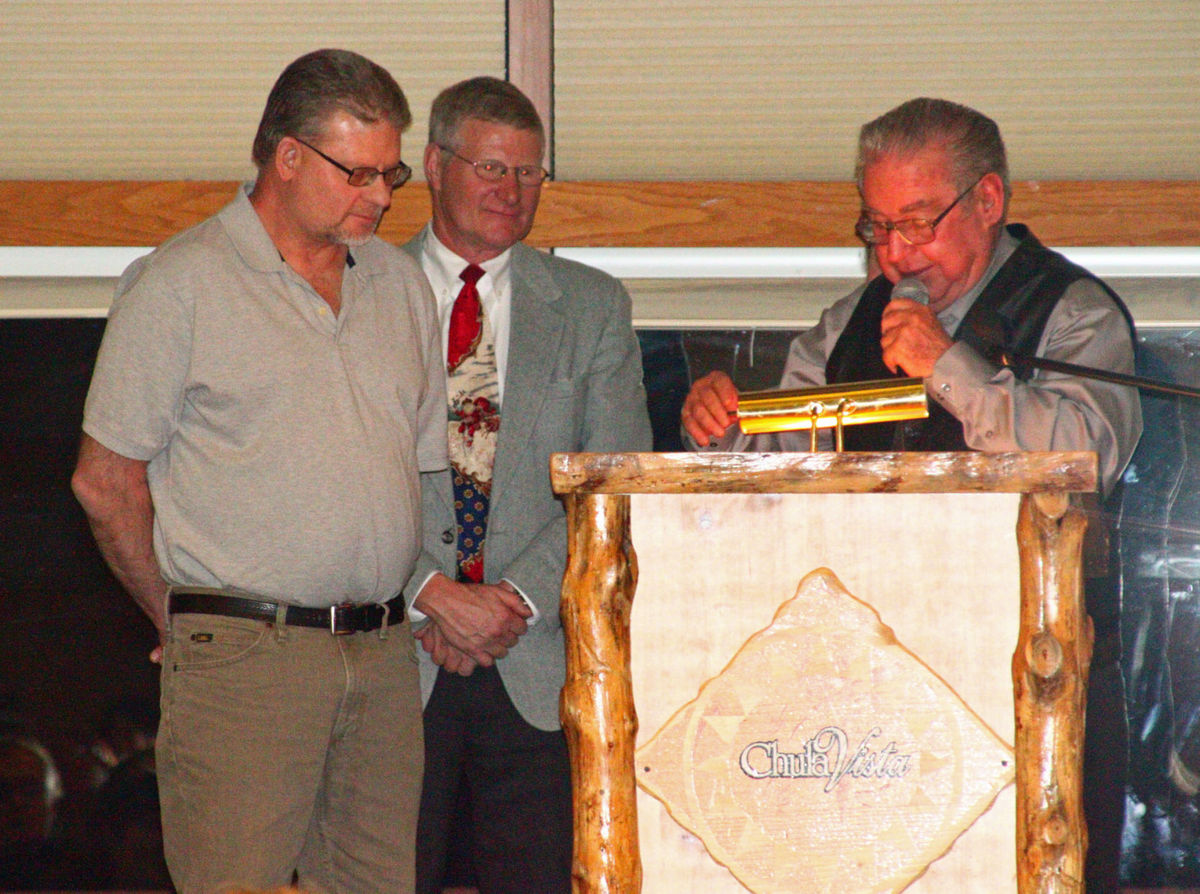
Capitol Update
| Helpful Wisconsin Links |

|
| Visiting Madison? |
| I would be happy to arrange a capitol tour for you. Call my office at (608) 266-0703 for more info. |
| Unsubscribe? |
| To unsubscribe, please send an email to Sen.Marklein@legis.wi.gov with ‘unsubscribe’ in the subject line. |
Rural Healthcare Matters
The vast majority of the 17th Senate District is rural. The
senate district I represent is one of the largest in the State
of Wisconsin, with all or parts of nine counties. The residents
of these nine counties face special challenges when it comes to
seeking and receiving the health care they need. Larger cities
naturally draw medical talent, resources and investment, but
there are crucial needs in our rural communities. As your State
Senator, I am seeking ways to improve the environment for
medical professionals in our rural communities and finding
opportunities to make our laws better meet our real-world needs.
One such need is a bill that makes Wisconsin a member of the
Interstate Medical Licensure Compact. This compact creates a
voluntary licensing option with an expedited licensing process
for physicians to practice in multiple states. The licensing
process moves faster and accounts for “static qualifications”
such as medical education, graduate medical education, and
results of medical or licensing examinations, that are the same
in most states.
By becoming part of this compact, Wisconsin will be able to
better recruit and retain physicians in our rural communities.
This licensing option is particularly important to the 17th
Senate District because our borders touch Iowa and Illinois; we
are also close enough to Minnesota to realize an impact from our
neighbors to the west. All of our neighboring states are already
participants in the compact and in Wisconsin, the compact has
received broad support from the medical community, including
hospitals, physicians, and clinics.
Enacting the compact will allow doctors to grow their practices
and serve a larger number of patients in our rural communities.
It will also allow Wisconsin hospitals and clinics to recruit
medical professionals from neighboring states by streamlining
the licensing process. I was proud to co-sponsor this
legislation.
Licensing is also an issue when it comes to emergency medicine.
In response to concerns from southern townships in Lafayette
County, I co-authored Senate Bill (SB) 210 last spring to allow
an Illinois-based Emergency Medical System (EMS) service, just
over the border in Illinois, to respond to an emergency call in
Wisconsin when they are the closest response team.
In Lafayette County there are several townships that are closer
to Illinois-based EMS than they are to Wisconsin-based EMS.
Complications in licensing prevented an Illinois provider from
serving Lafayette County even though it is simply faster to have
an EMS service over the border in Illinois respond to the call.
When it is a matter of life and death, a state border should not
get in the way of saving a person’s life. My main concern, when
reviewing this situation, is not who responds; it is that
someone responds. Governor Scott Walker signed this
bi-partisan bill earlier this year to exempt limited EMS
services in certain situations. I was proud to make this common
sense change to the law so that our rural residents are better
covered for emergency medical situations.
But this isn’t our only challenge, when it comes to EMS services
in rural Wisconsin. Recruiting local people to serve as EMTs is
becoming more and more difficult. Several local groups have told
me that the training requirements for licensing Emergency
Medical Technicians (EMTs) have made it difficult to recruit new
people because of the time it takes to become licensed. As the
training requirements increase, the number of volunteers in
rural communities decrease.
In our rural communities, the majority of EMS personnel are
volunteers. They give their time and talent to protect their
families, friends, neighbors and visitors. They want to help.
However, the amount of time it takes to become licensed as an
EMT has steadily increased over the last 30 years. The state has
added a lot of training and information that goes well beyond
the realistic needs of our rural EMTs. I am working with our
communities and my legislative colleagues to find ways to
improve the training program to make it easier for rural EMS to
recruit members and train responders so that our communities are
covered for emergencies.
I have also worked with my colleagues to insure that our rural
communities are served by hospitals. Last year, hospitals
employed about 107,000 people in Wisconsin. The average salary
for those individuals working in healthcare is higher than the
average wage for all occupations. In 2013, a typical worker in
Wisconsin earned $44,690 and the average employee in the health
care industry in Wisconsin earned $58,300. In many areas of the
state, the hospital is the largest employer in many communities.
In our area of the state, hospital employment represents 3.9% to
4.7% of total employment.
In the state budget, I supported two important provisions that
help rural hospitals. The first was an additional $33 million in
payments from the state for hospitals that saw a
disproportionate share of Medicaid patients. They currently do
not receive full reimbursement for these patients. There is one
of these hospitals in almost every county I represent.
The second provision was the retention of the Rural Physician
Residency Assistance grant program through the University of
Wisconsin - School of Public Health for medical students that
spent their residency working in a rural or underserved area in
Wisconsin. Grant recipients have gone on to serve in our
communities at Monroe Clinic, Grant Regional Health Center, Dean
Clinic-Dodgeville, and Richland Medical Center.
Through the support for initiatives such as the Interstate
Medical Licensure Compact, the Rural Physician Residency
Assistance Program, and additional funding for disproportionate
share hospitals, the state is able to facilitate an environment
that helps foster one of its strongest industries. I will
continue to work on new ways to ensure that the people in our
communities receive the access they need to quality health care.
For more information and to connect with me, visit my website
http://legis.wisconsin.gov/senate/17/marklein and subscribe
to my weekly E-Update by sending an email to Sen.Marklein@legis.wisconsin.gov.
Do not hesitate to call 800-978-8008 if you have input, ideas or
need assistance with any state-related matters.
2015-16 Blue Books
The 2015-16 Blue Books have arrived at the Capitol! If you would
like one, please let me know, I would be happy to make sure you
receive a blue book.
|
In the District |
|
Congratulations, Ronnie Ehle!
Ronnie Ehle (left) is honored by Brunner
Manufacturing CEO Ronald Brunner (right) and State Senator
Howard Marklein (middle) on Friday at the Chula vista Resort in
Wisconsin Dells |
|
Helpful Information |
Southwest Wisconsin Year to Date Automobile
Sales through November
Every month, the Wisconsin Automobile and Truck Dealers
Association releases the monthly sales trends for counties
around the state. You may remember that I shared this
information with you back in August, and we saw that truck sales
accounted for majority of the automobile sales in the district.
As you can see from the data below, once again, majority of the
automobile sales in my senate district are truck sales – and the
sales continue to rise in the year to date trends!
| County | Vehicle |
November YTD 2014 |
November YTD 2015 |
% Change |
| Grant | Car | 592 | 503 | -15.03% |
| Truck | 1,520 | 1,810 | 19.08% | |
| TOTAL | 2,112 | 2,313 | 9.52% | |
| Green | Car | 459 | 373 | -18.74% |
| Truck | 890 | 1,063 | 19.44% | |
| TOTAL | 1,349 | 1,436 | 6.45% | |
| Iowa | Car | 271 | 238 | -12.18% |
| Truck | 679 | 735 | 8.25% | |
| TOTAL | 950 | 973 | 2.42% | |
| Juneau | Car | 224 | 234 | 4.46% |
| Truck | 552 | 607 | 9.96% | |
| TOTAL | 776 | 841 | 8.38% | |
| Lafayette | Car | 159 | 137 | -13.84% |
| Truck | 430 | 543 | 26.28% | |
| TOTAL | 589 | 680 | 15.45% | |
| Monroe | Car | 464 | 351 | -24.35% |
| Truck | 1,019 | 1,081 | 6.08% | |
| TOTAL | 1,483 | 1,432 | -3.44% | |
| Richland | Car | 162 | 136 | -16.05% |
| Truck | 397 | 434 | 9.32% | |
| TOTAL | 559 | 570 | 1.97% | |
| Sauk | Car | 664 | 606 | -8.73% |
| Truck | 1,570 | 1,807 | 15.10% | |
| TOTAL | 2,234 | 2,413 | 8.01% | |
| Vernon | Car | 242 | 205 | -15.29% |
| Truck | 584 | 719 | 23.12% | |
| TOTAL | 826 | 924 | 11.86% | |
| REGIONAL TOTAL | Car | 3,237 | 2,783 | -14.03% |
| Truck | 7,641 | 8,799 | 15.16% | |
| TOTAL | 10,878 | 11,582 | 6.47% |
*Senator Marklein is pleased to provide this
legislative E-Update to the constituents of the 17th State
Senate District. Please feel free to share this update with
other interested citizens and taxpayers. You are receiving this
update because you have either subscribed or contacted Senator
Marklein directly.
Please Note: If you have contacted the Senator with specific
input or questions, a personal response is forthcoming.
UNSUBSCRIBE: If you would like to remove your e-mail address
from my E-update mailing list, please reply to this message with
the word “unsubscribe” in the subject line.
State Capitol - Room 8 South - Post Office Box 7882 - Madison, Wisconsin 53707 - Phone: (608) 266-0703




